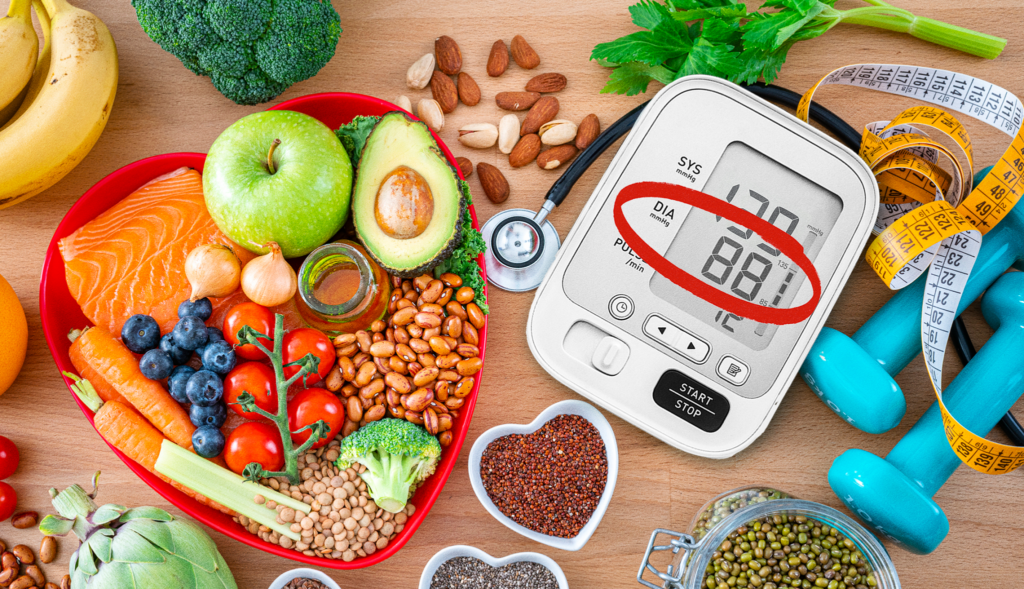High Diastolic Blood Pressure: Causes and Risk Factors

In a typical scenario, when a person has high blood pressure – 130/80 or above, according to the latest guidelines – their top and bottom numbers are both elevated. Sometimes, just the top number, called systolic blood pressure, is high. But far less commonly, diastolic blood pressure – that bottom number – is high even when systolic blood pressure is not.
Called isolated diastolic hypertension, this affects about 6.5 percent of the U.S. population, according to a research review published in Frontiers in Cardiovascular Medicine.
“You rarely see that, but you do see it,” says Christian Koch, M.D., an endocrinologist and chief of the division of endocrinology, diabetes and metabolism at the University of Florida College of Medicine – Jacksonville.
Unlike general or systolic hypertension, where age is the number one risk factor, diastolic blood pressure may stay the same or get lower as people get older. One suggested reason for this is that while arteries tend to get stiffer and less elastic with age, often raising systolic pressure when blood is pumped into arteries, the same dynamic isn’t reflected in diastolic blood pressure, when the heart is relaxed (a phase called diastole).
A study of 233,437 middle-aged and older Chinese patients published in the journal Stroke determined that 8 percent of those 35 to 59 years had isolated diastolic hypertension, compared with 4 percent of participants 60 and older.
What causes diastolic blood pressure to be high?
A number of factors can raise diastolic blood pressure – whether in combination with systolic blood pressure, which is far more common, or not. For many Americans, obesity or being overweight has increased their risk for high blood pressure, including diastolic hypertension.
“Forty-two percent are obese, and another 30 percent or so are overweight. That brings us to [about] 70 percent who have not ideal body weight,” Koch notes. “What happens with increasing body weight is usually also increasing blood pressure – and the reason for that is you have various hormones getting out of homeostasis.” Put simply, they’re out of balance.
To learn more about how high diastolic blood pressure can impact your health, from AARP, CLICK HERE.
